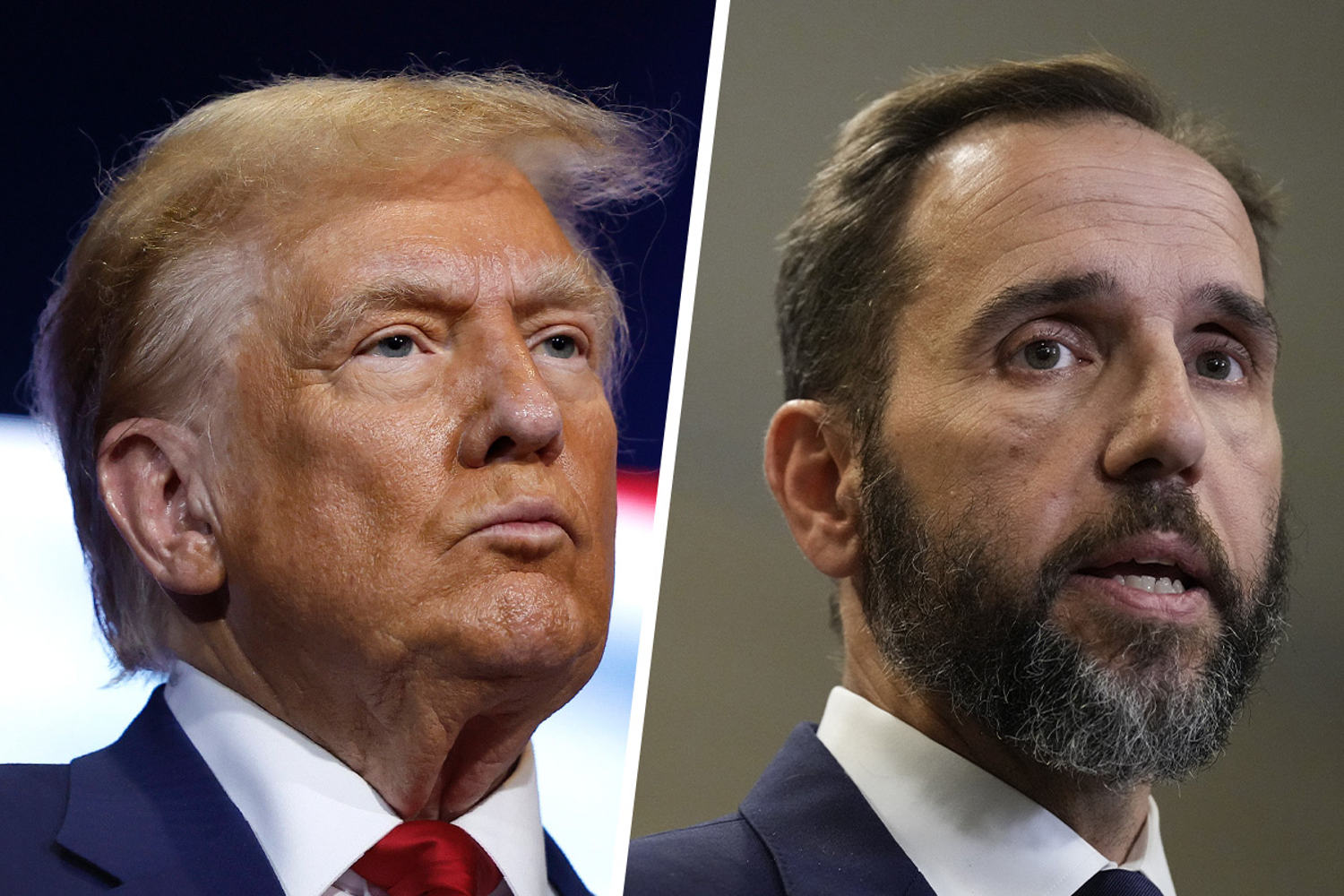
Donald Trump told a conservative radio host Thursday that, if elected, he would fire special counsel Jack Smith “within two seconds.” It’s hard to hear this without recalling how another Republican president, Richard Nixon, tried this same maneuver as a last-ditch attempt to avoid having to comply with a special prosecutor’s subpoena for what turned out to be incriminating audio tapes. Nixon’s directive to fire then-special prosecutor Archibald Cox led to the “Saturday Night Massacre,” when Nixon’s attorney general and deputy attorney general resigned rather than carry out Nixon’s order.
But Trump may have come up with a plan to avoid the messy Nixon-era optics of multiple resignations.
Given that he’s no student of history, Trump may not know that a president can’t fire a special counsel — at least not directly.
In November 2022, Attorney General Merrick Garland appointed Smith as special counsel and authorized him to conduct two investigations. The first covered possible crimes committed by Trump in connection with his attempts to retain the power of the presidency after losing the 2020 election, while the second concerned possible crimes surrounding his retention of classified documents in Florida. As a result of this appointment, Smith indicted Trump on four counts for crimes allegedly committed on and around Jan. 6, 2021, and 40 counts in the classified documents case.
Unsurprisingly, then, Trump has attacked Smith ever since his appointment, and is now promising to fire Smith as one of his first acts should he be elected to a second term.
Given that he’s no student of history, Trump may not know that a president can’t fire a special counsel — at least not directly. Only the attorney general can fire a special counsel. This is why, in 1973, when Nixon wanted to shut down Cox, he ordered Attorney General Elliot Richardson to do so. Richardson refused and immediately resigned. Nixon then turned to his deputy attorney general, William Ruckelshaus, and ordered him to fire Cox. Ruckelshaus also refused and resigned. Nixon then moved on to the No. 3 guy at the Department of Justice, Solicitor General Robert Bork and ordered him to fire Cox. Bork did so, though a court later would rule the firing was unlawful.
Trump has considered firing a special counsel once before. During Robert Mueller’s Russia investigation, Trump considered asking Deputy Attorney General Rod Rosenstein to fire Mueller (Attorney General Jeff Sessions had recused himself from overseeing the inquiry). But his White House counsel Don McGahn threatened to resign, and even loyal Republicans like Sen. Lindsey Graham warned that “any effort to go after Mueller could be the beginning of the end of the Trump presidency.”
This time, though, Trump may have a scheme to ensure a Justice Department official will do his dirty work. ABC News recently reported that Trump’s transition team has none other than Judge Aileen Cannon on the short list to be Trump’s attorney general. NBC News and MSNBC haven’t confirmed the report, which cited “sources familiar with the matter.” But Cannon’s appeal to Trump is obvious, as she might be just the person whom Trump could count on to fire Smith.
Trump likely won’t even have to tell Cannon to fire Smith, because, in substance, she already has.
Cannon was nominated to the federal bench by Trump (and confirmed after he lost the 2020 election). When the FBI seized classified documents from Mar-a-Lago, Trump’s Florida property, Trump filed suit contesting the legality of the seizure. Cannon was assigned to preside over the litigation, and her ruling appointing a special master to the matter effectively stopped the criminal investigation dead in its tracks. When the Department of Justice appealed, the 11th Circuit Court of Appeals reversed Cannon not once but twice for abusing her judicial discretion.
After Smith indicted Trump for crimes including unlawful retention of classified materials, obstructing justice and violating our nation’s espionage laws, the trial was unfortunately assigned to Cannon. After months of foot-dragging, she dismissed the charges against Trump, concluding that special counsels are unconstitutional. Cannon made this ruling notwithstanding the fact that special counsels and special prosecutors have been used in the criminal justice system dating back to the 1800s, and every judge and court that has ever litigated the issue has ruled that they are lawful and constitutional.
It’s fair to say that Trump hit the jackpot by having Cannon preside over and dismissing his criminal case. He certainly thinks so: though Trump has relentlessly and often viciously criticized virtually all other judges who are presiding over his criminal and civil cases, he has praised Cannon effusively every step of the way.
Now, the kicker: Let’s assume Trump nominates Cannon to be attorney general and she is confirmed by the Senate. Trump likely won’t even have to tell Cannon to fire Smith, because, in substance, she already has. Trump would be able to avoid the messy “Saturday Night Massacre” debacle that was part of Nixon’s downfall.
Trump’s promise to fire Smith is a final warning to voters that he is proudly and enthusiastically corrupt to his core. In the event voters return him to office, he undoubtedly will once again be willing to use that office’s powers to evade criminal accountability. And, given that the Supreme Court’s immunity ruling has given Trump a blueprint for how to continue to evade criminal accountability, it’s not hyperbole to conclude that in the upcoming election, the health of American democracy is on the line.
